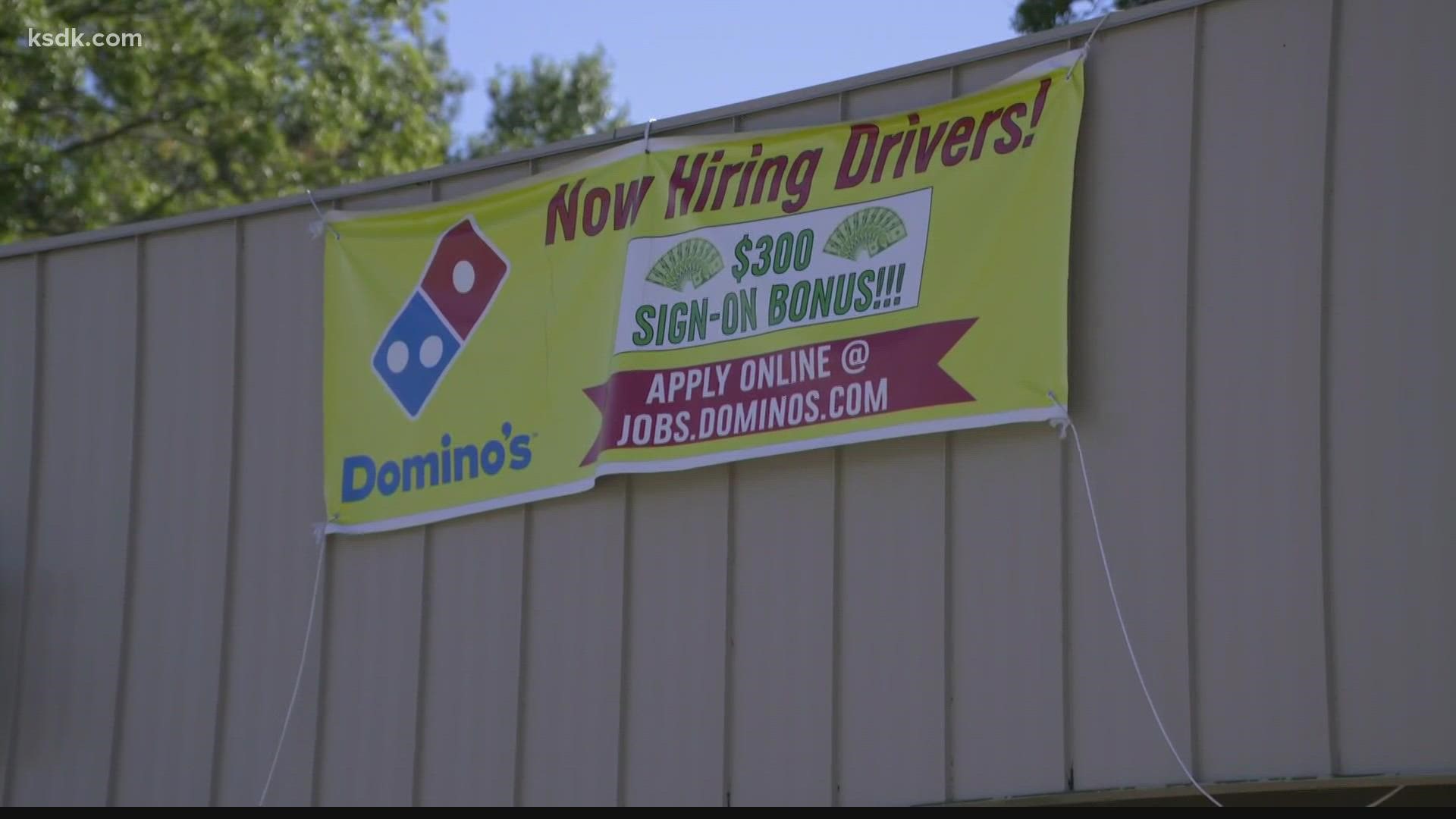ST. LOUIS — New info from the Bureau of Labor Statistics found that the number of people who've been unemployed for longer than six months only dipped slightly last month and still sits around 2.3 million people.
Some experts say that's partly due to a mismatch of what employers are requiring of workers compared with what workers need from their employers. Other experts say there are also missed opportunities.
Just about everywhere you turn, you see help wanted signs. Even the CEO of Bi-State has been making the media rounds, asking people to go online and apply to become Metro Transit drivers.
"I'm showing up as much as best I can and asking people to come and look at workatmetrostl.com," said Taulby Roach, CEO of Bi-State. "We have a $2,000 signing bonus right now for new employees. This is a great job with good pay and with benefits. This is a career. It's not just a temporary job."
Across industries, companies have offered hiring incentives and wage hikes -- so you might be asking yourself -- where are all the workers? Kathy Osborn, executive director of the Regional Business Council says many of them are sitting out.
"You hear a lot right now about the great resignation. We like to think about it as the great reevaluation," said Osborn. "I think across the country in all demographics, all age groups. People are really stepping back and saying to themselves, 'Who am I? What's my relationship to work? And what do I want my job or my career to look like?'"
While people may be re-evaluating, many are feeling stuck at the same time.
Theresa Barnes has been unemployed as a small business owner and photographer, but for months she has said that it's been impossible to find a decent job online.
"The problem that I'm running into is that my skills are so specific," said Barnes back in the summer. "I've been applying for work from home positions."
We've kept in touch with Barnes who is going back to school and reevaluating, but at the same time is also struggling to make ends meet for her family. She says she has December rent paid, but worries about how she'll continue to have housing.
Experts say there is some mismatching going on between workers and employers. For example, employers tend to want people with years of experience and available any day of the week. A majority of employers also say they want people working in person, not remote. That's leaving millions of untapped workers at home.
"I think we're going to have to dig deeper in terms of finding people who could come into the labor force," said Osborn. That could mean reaching new people in new places like underserved communities. The Urban League of St. Louis is working with some people who have never entered the workforce or may need some help re-entering the labor force. Economists have also said immigrants may be the answer to some workforce shortages.
And then there's a notion that companies might have to help workers with barriers like childcare or transportation.
"They want those barriers broken down," said Osborn of companies. "They want to see opportunity for a much wider group of people, and they're taking more responsibility about that now. All of a sudden you're seeing a whole new receptivity and understanding."

